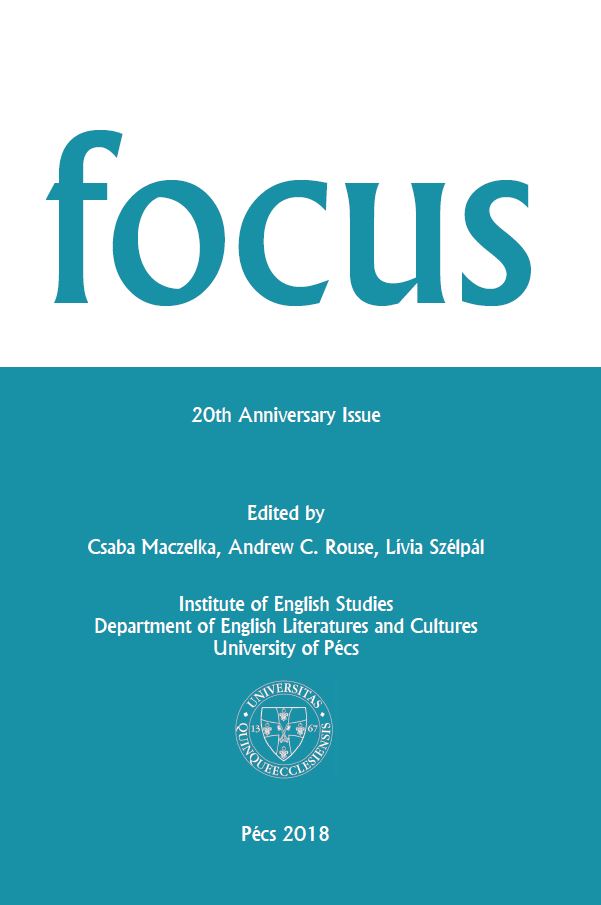The (Im)Possibility of Academic Integrity in John Williams’s Stoner
DOI:
https://doi.org/10.15170/Focus.11.2018.4.57-71Abstract
Written in 1965, Stoner, the recently re-discovered academic novel by John Williams (1922-1994) deals with a variety of intriguing issues such as the role of literature in the personal growth of an individual, the tension between private desires and social customs, and the role of family in an individual’s life.1 By some, it was read as “an all-American success story …[about] socio-economic mobility through hard work, individual effort, and merit” (Wald 2). Our paper, however, will focus on the portrayal of issues such as academic integrity and the perception of academics and academic work. Williams’s novel, not only through the story it tells, but also as an object, as a work of art, seems to reflect on the worrying idea of the irrelevance of the humanities, the humanist way of thinking, and humanist preoccupations, and does this in a way that is rather untypical of most campus novels.
Downloads
Published
How to Cite
Issue
Section
License
Copyright (c) 2022 FOCUS: Papers in English Literary and Cultural Studies

This work is licensed under a Creative Commons Attribution-NonCommercial-NoDerivatives 4.0 International License.
FOCUS: Papers in English Literary and Cultural Studies follows the principles laid down by Creative Commons, which provides guarantees for the Author’s copyright while also ensuring that intellectual properties are made available for the wider public in a digital form. All papers submitted to the journal apply the following licence conditions (indicated on the journal’s website as well as in individual publications):
“© This work is licensed under a Creative Commons Attribution-NonCommercial-NoDerivatives 4.0 International License.”
You are free to:
- Share, copy and redistribute the material included in the journal in any medium or format under the following terms:
- Attribution — You must give appropriate credit to the Author, and indicate the original place of publication [FOCUS: Papers in English Literary and Cultural Studies, Issue nr., page numbers.].
- NonCommercial — You may not use the material for commercial purposes.
- NoDerivatives — You are not allowed to remix, transform, or build upon the material.
- The above conditions must always be indicated if the journal material is distributed in any form.
- The above conditions must always be met, unless a written permission signed by the Author and the Editor-in-Chief states otherwise.

